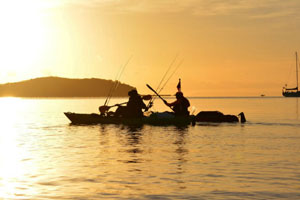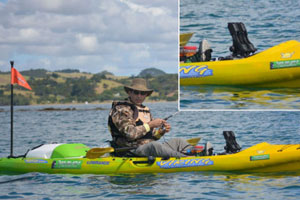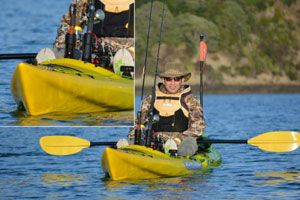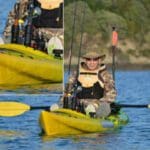Orders placed before 3pm CT ship today! (Mon-Fri)

Select your boat, and we'll show you products that fit your Make & Model.

Our product is made from at least
75% recycled polyester fibres.

Our product is made from at least
75% recycled polyester fibres.

Our product is made from at least
75% recycled polyester fibres.
Enter your account email address and password and click continue to log in.
All fields are mandatory. Please carefully fill all the fields and click continue to create account.

Please select your local RAILBLAZA website.
You’ve landed on our US site. Please visit our International site to access a wider range of features and products, as well as to find locations that carry RAILBLAZA products near you.
You’ve landed on our US site. Please visit our Canadian site to access products and shipping in Canadian dollars, as well as to find locations that carry RAILBLAZA products near you.
You’ve landed on our US site. Please visit our Australian site to access products and shipping in Australian dollars, as well as to find locations that carry RAILBLAZA products near you.
You’ve landed on our US site. Please visit our UK site to access products and shipping in UK pounds, as well as to find locations that carry RAILBLAZA products near you.

As told by Yak Gear President Bill Bragman -
It’s hard to teach an old dog new tricks. Through the combination of kayak fishing for most of my adult life and working in the paddlesports industry during this period of incredible growth, this old dog thought he knew most of the tricks.
I was wrong.
Recently, I had the pleasure of traveling to New Zealand to meet with our friends from Railblaza and Viking Kayaks. While the usual work, product development, and distribution talks were very exciting, I was most excited for the opportunity to get out on the water with these kayak fishing experts! With little to no inland waterways, most kayak fishing trips are all done in 40 – 100 feet of water. My dependable 6 ft. Yak Stick Mud Anchor wasn’t going to cut it…
Jason Milne – better known in the industry as Paddle Guy – picked me up at 5:30am to meet Stephen Tapp of Viking Kayaks and we were off.
We hauled our kayaks out to the water on their C-Tugs and we began to load up the kayaks for a surf launch. Just as I have always done, I put the Railblaza Rod Holder II in a StarPort facing the bow of the kayak. Jason laughed…
“Sit down in the paddling position” he told me. As I got comfortable, Jason used the slide-locking mechanism on the Railblaza base to pop the rod holder out, turned it around, and raised it to an almost vertical position.

The light bulb popped on inside my head before he even finished setting the rod holders into place. It was the first time that I did not have to ‘scoot’ forward to reach past my knees to grab my rod out of the front mounted rod holder. The paradigm of a forward facing rod holder was so embedded in my brain that forgot to consider just how impractical the set up was!
This once impractical and time consuming process of either scooting forward or stretching like the gymnast – because kayak anglers are super flexible, right? – was finally comfortable and quick!
The benefits of turning my rod holder around became clearer than the beautiful blue New Zealand water. Think about how different aspects of kayak fishing could be made much easier with this added quickness and comfort?

Changing Lures
In the past, if I wanted to change my lure, I would either have to scoot or stretch to get the rod and lay it in my lap. Leashes and all, having a rod unsecured in your lap is always risky. The more unsecured the rod is, the higher the chances of a mistake happening are. You never know when the rod will slip, you will lose balance, or the hook will catch some unsuspecting piece of flesh.
By having the rod holder mounted almost vertically and facing me, the lure literally dropped into my lap and I was able to easily apply my bait or change my lure.
Rod Retrieval
In New Zealand, trolling is the way to go kayak fishing! Trolling with my rod holder turned around allowed me to easily see when I was getting action on my line. While shortening my reaction time to grabbing my rod is great, the real benefit comes from the how easy the rod is to retrieve. With one quick swoop of my rod, I was fighting the fish quicker than ever before because I eliminated the “scoot” to the front facing rod holder or the “turn and grab” to the rear mounted rod holder.
Think about the importance of a quick rod retrieval to sight casters! How much could simply turning the rod holder around help stalking a redfish in the flats? You’re quicker, more comfortable and thus quieter.
Landing a Fish
As easy as it was to retrieve, mounting the rod back into the rod holder is equally easy. You don’t have to go much further than a search for kayak fishing on YouTube to see that when folks get a fish close to the kayak, they lay their rod across their lap.
Wouldn’t this rod be safer in the rod holder? Wouldn’t the process of landing a fish be much easier with two hands on the fish and none on the rod?

But it looks funny, right?
It may look funny to some people. You know, it’s not the classic two back rod holders angled at a 45 degrees and one front rod holder facing straight over the bow…
After all, it looked funny to me at first. However, with all the benefits that turning your rod holder around provides, you won’t catch this dog on the water ever again without showing off the new trick he learned!
– See more at: http://www.yak-gear.com/turn-your-rod-holder-around/#sthash.8TbCSStG.dpuf





